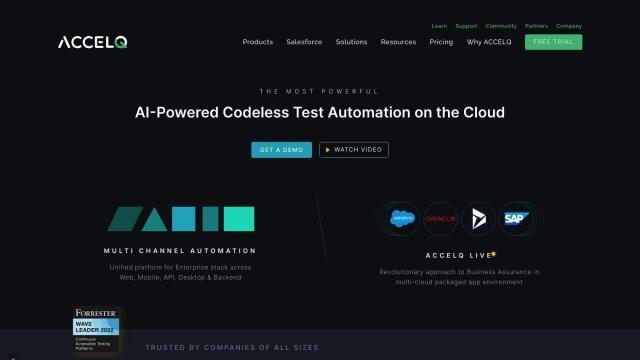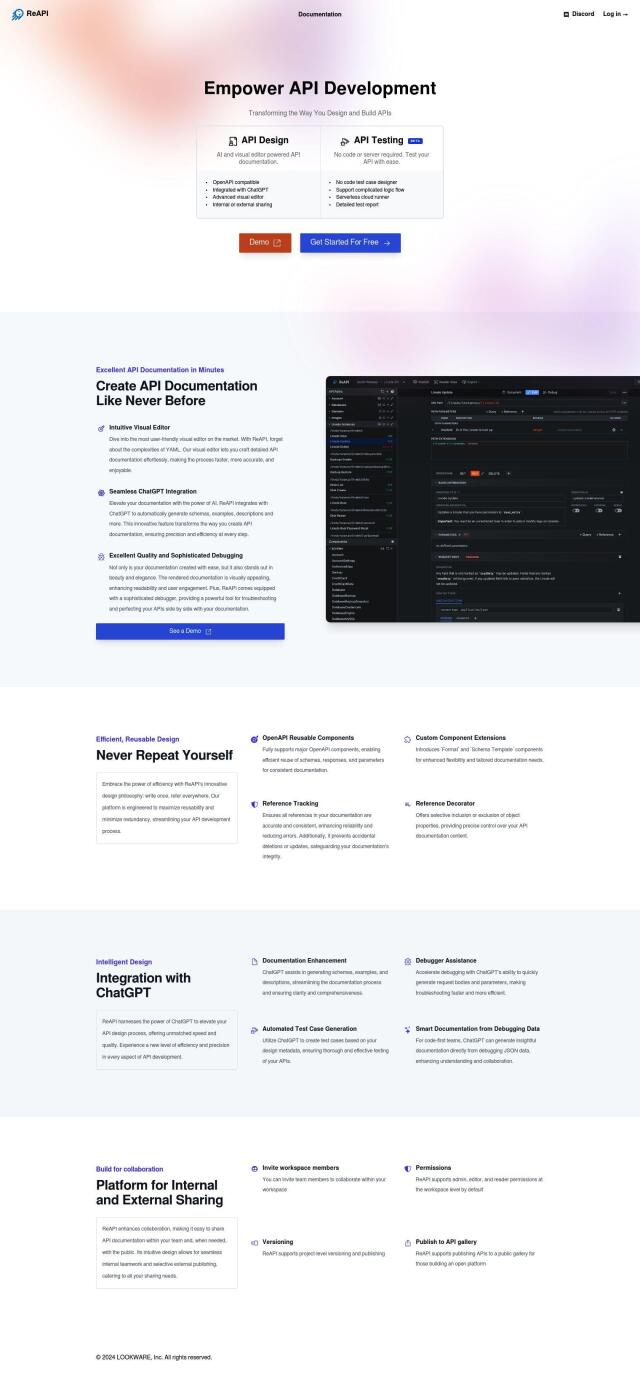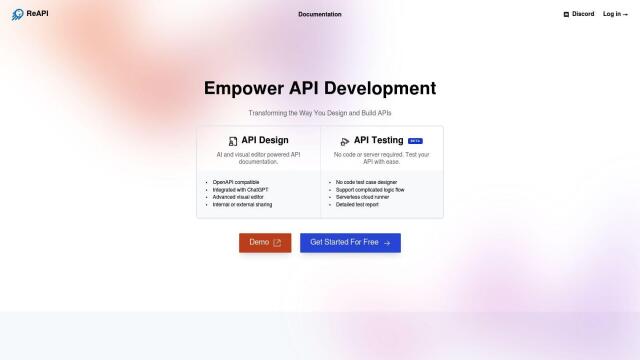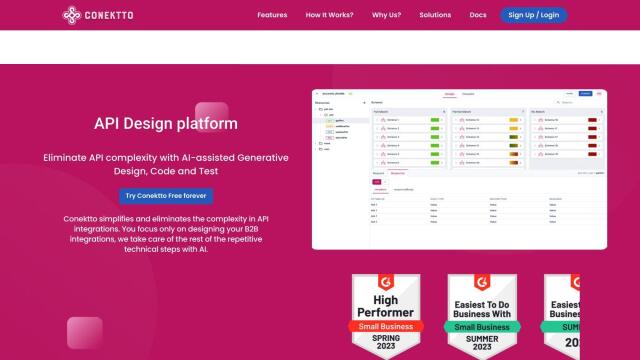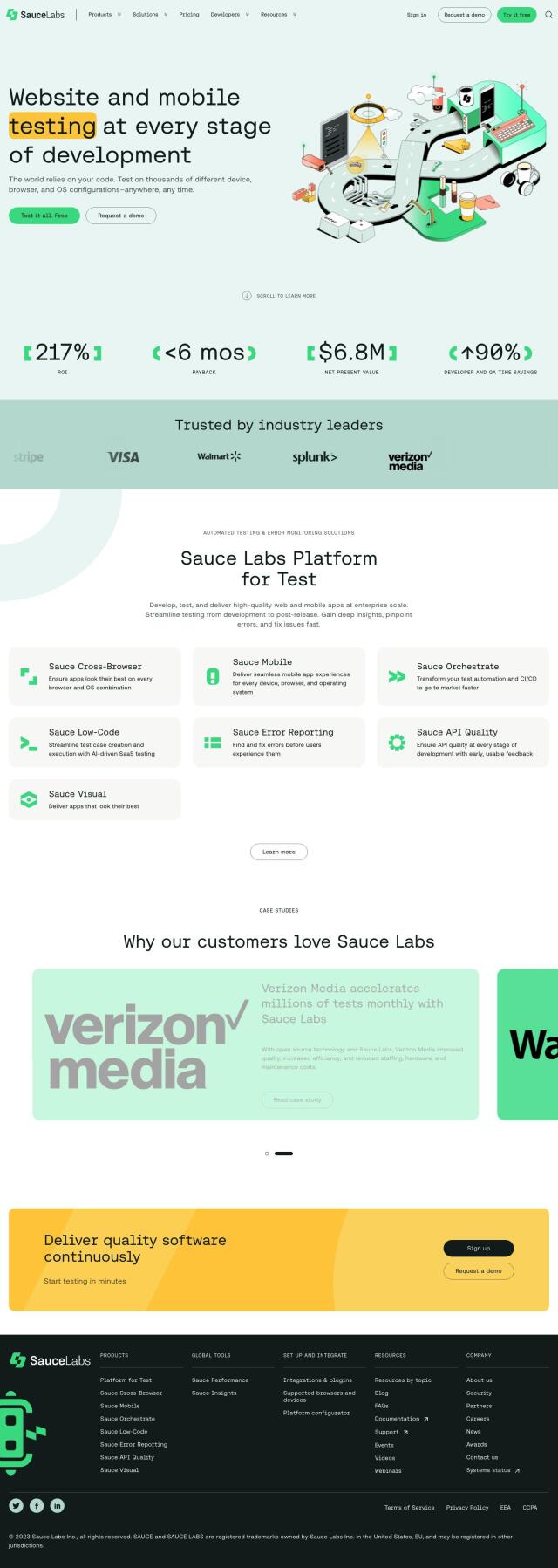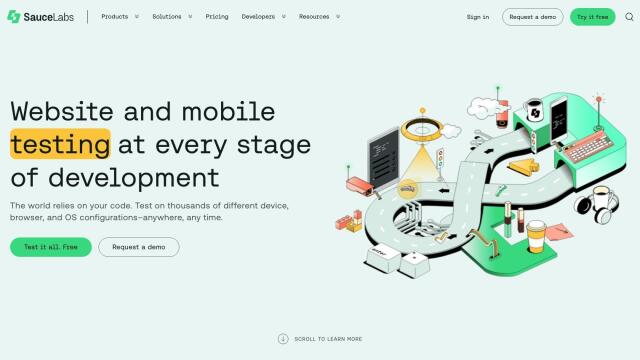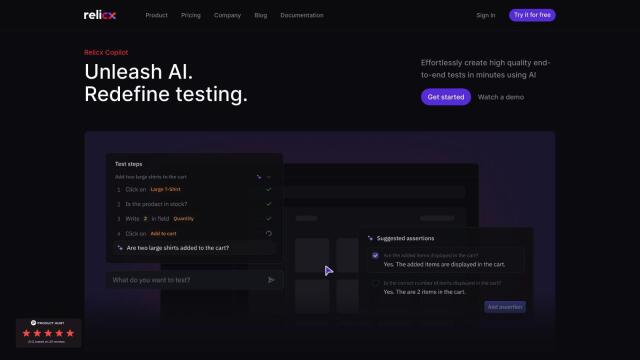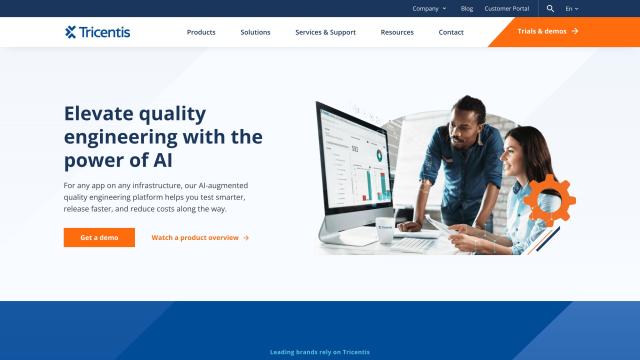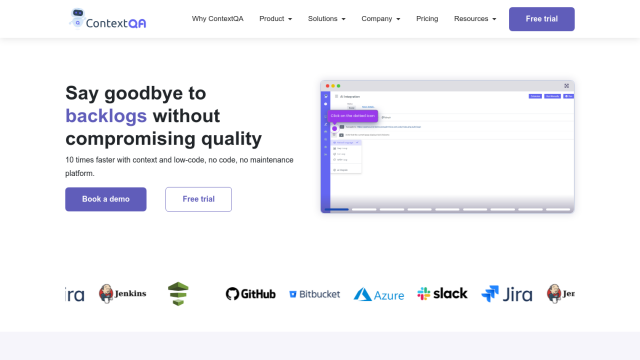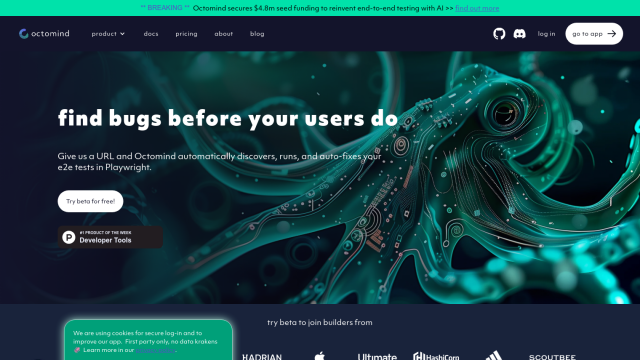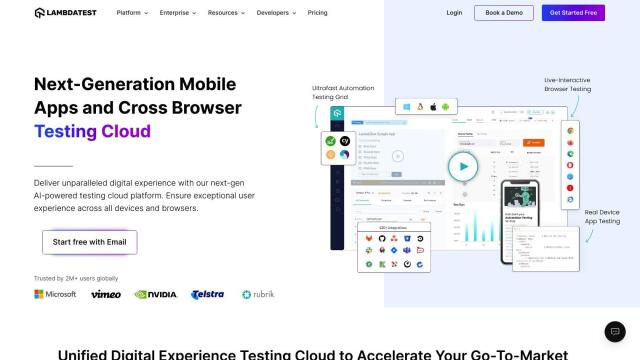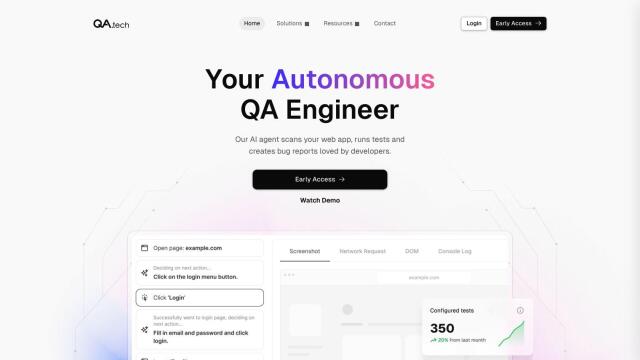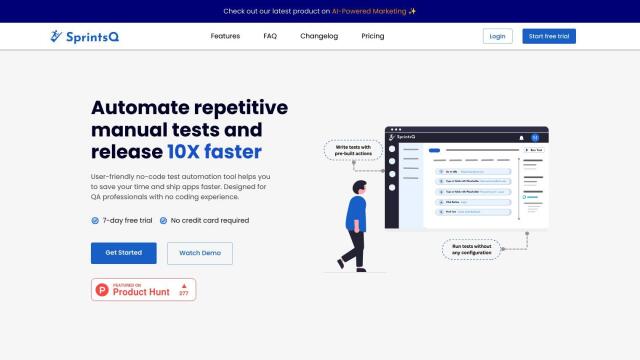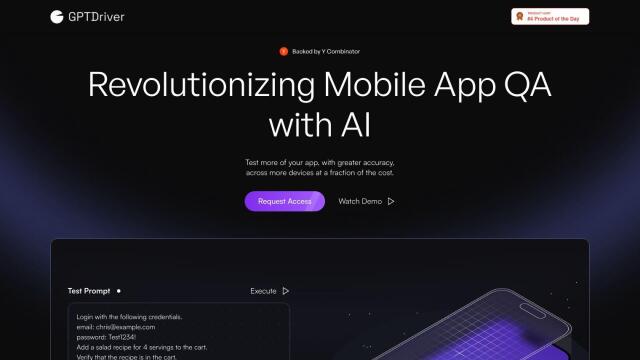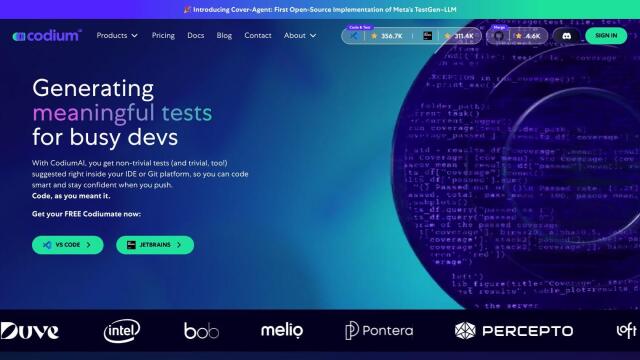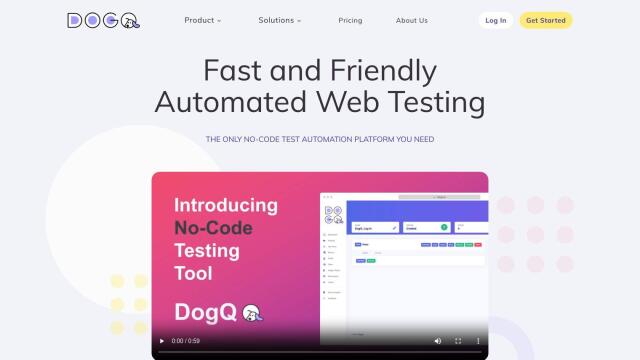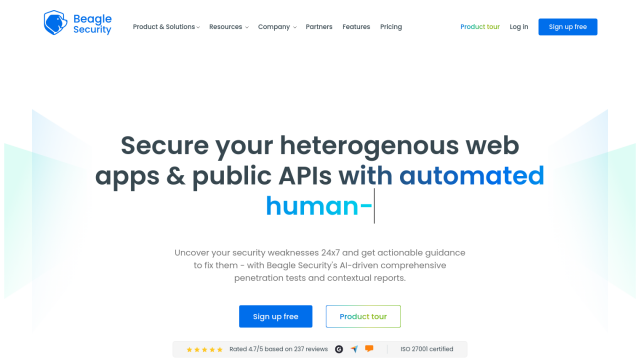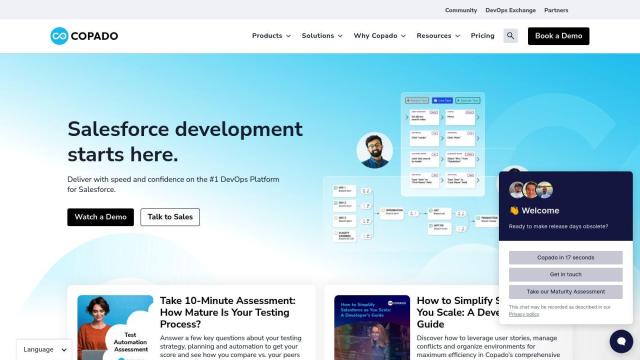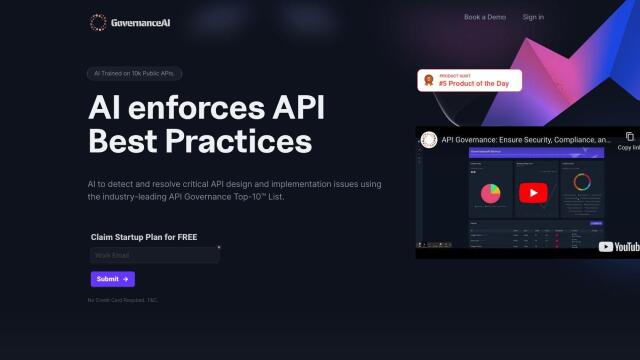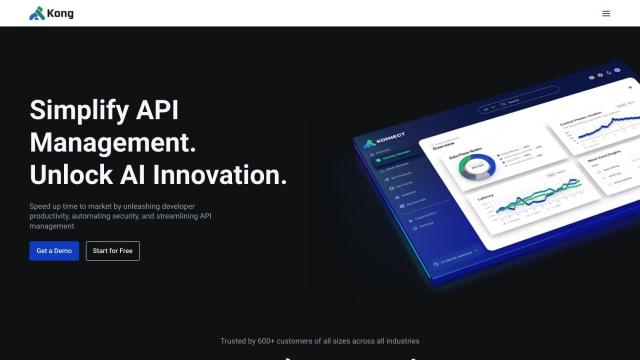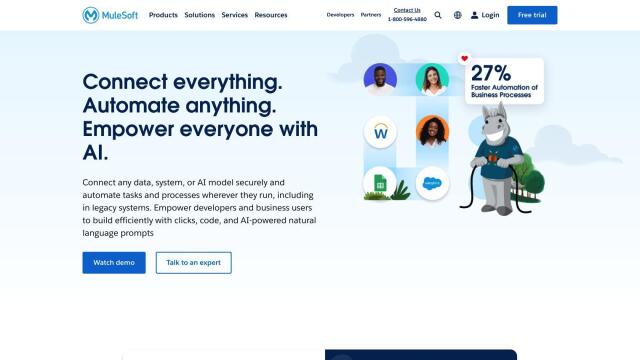Question: Is there a tool that can automate API testing and integrate with my existing development workflow?

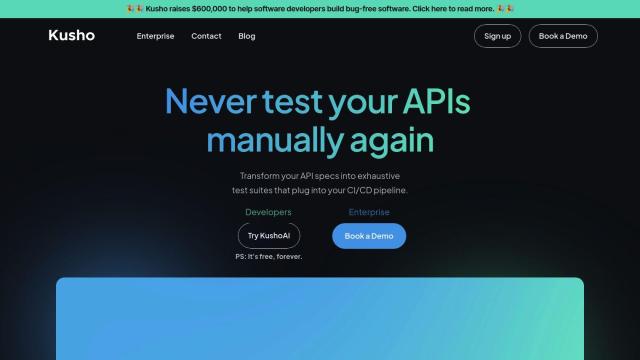
Kusho
If you want to automate API testing and build it into your existing development process, Kusho is a good option. Kusho is an AI-powered agent that converts API specifications into a full suite of tests, bypassing manual testing and integrating with your existing development process. It accepts input from Postman collections, OpenAPI specs or cURL commands and offers real-time results with AI-generated analysis, making it a good option for developers and test teams that want to automate API testing.

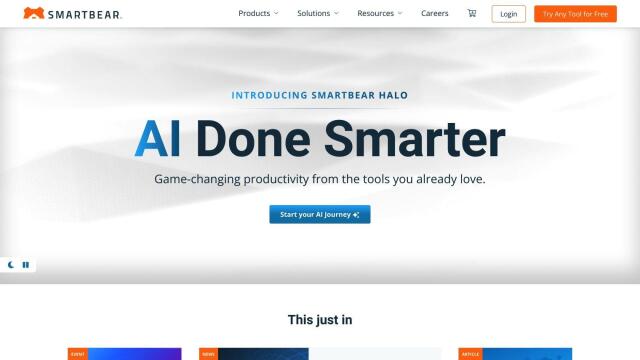
SmartBear
Another good option is SmartBear, a suite of software development, monitoring and testing tools. Its API Hub includes products like SwaggerHub and PactFlow for designing, documenting and testing APIs, and its Test Hub includes tools like TestComplete and Zephyr Enterprise for automating and running tests. SmartBear's tools are highly customizable and integrate with popular development tools like Git, Docker, Jenkins and Azure DevOps, so it's flexible and scalable for large projects.


Devzery
If you want to take the AI route, Devzery offers automated API regression testing with full and optimized test cases. It integrates with CI/CD pipelines using tools like Bitbucket, Github and GitLab, and offers real-time bug tracking and prioritization. The platform is good for developers and QA teams who want to lower development costs and get new products to market faster and with higher reliability, with pricing tiers to match different needs and a 2-week free trial.

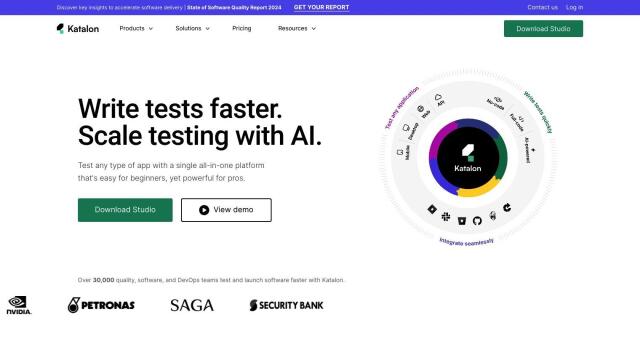
Katalon
If you want a more general-purpose testing tool, Katalon offers an end-to-end software quality management platform. It tests web, mobile, API, desktop and packaged apps, and integrates with popular CI tools like Jenkins and Azure DevOps. Katalon's AI-powered tools, such as TrueTest for regression testing and StudioAssist for automated code generation, can cut testing time dramatically, offering a modern approach to ensure high-quality digital products.

